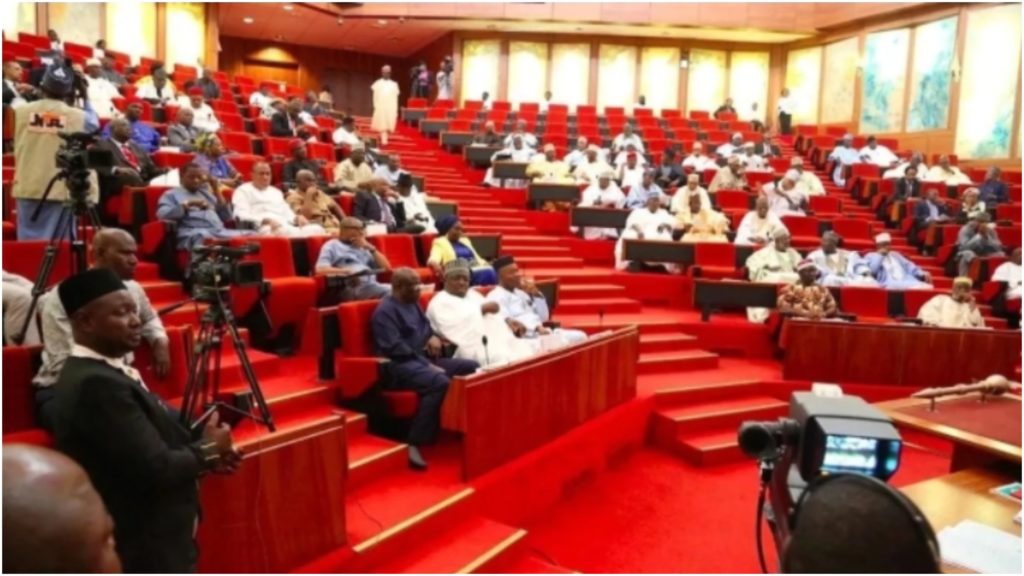The Nigerian Senate is moving on stripping immunity in criminal matters for Presidents in Nigeria.
This is part of the amendment being proposed for the 1999 Constitution by the Senate.
Also to be affected are the Vice President, Governors and their deputies.
This followed the second reading of a Bill titled: “A Bill for an Act to alter the provisions of the Constitution of the Federal Republic of Nigeria, 1999 to qualify criminal liability for certain public officers under Section 308”.
The bill was sponsored by the Deputy Senate President, Ovie Omo-Agege.
“This act provides for qualification of the immunity clause to exclude immunity for Public Officers referred to in Section 308 from criminal liability where the offence involves misappropriation of funds belonging to the Federal, State or Local Government and also the use of thugs to foment violence”, it states.
The bill provides that a President, Vice President, Governors and Deputy Governors shall lose their immunity if they are investigated by security and anti-graft agencies, including the courts.
It further reads: “Section 308 of the Principal Act is altered by (a) Substituting for subsection (2), a new subsection “(2)” –
“(2) The provisions of subsection (1) of this section shall not apply –
“(a) to civil proceedings against a person to whom this section applies in his official capacity or to civil or criminal proceedings in which such a person is only a nominal party; and
“(b) to persons who hold the office of Vice-President, Governor or Deputy Governor, if it is determined either by the Economic Financial Crimes Commission, Independent Corrupt Practices Commission, Nigerian Police and State Security Service through a collaborative investigation that the said person is indicted by a court of competent jurisdiction for:
“(i) Financial misappropriation of funds belonging to the Federal, State or Local Government; or
“(ii) Sponsoring of thugs to perpetrate violence that cause injury or death of political opponent, a member of his family, agent or personal representative.”
